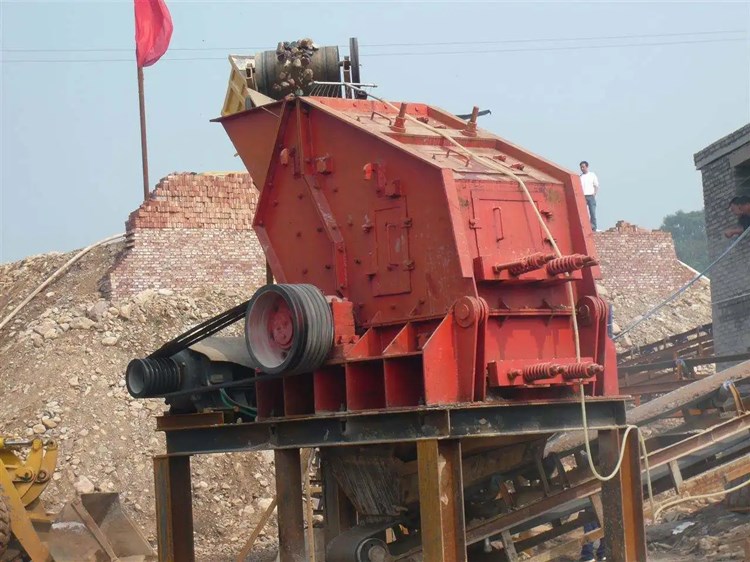
Beskyttelseserklæring: Dit privatliv er meget vigtigt for os. Vores virksomhed lover ikke at videregive dine personlige oplysninger til ethvert udstrækning uden dine eksplicitte tilladelser.

Selecting the right crusher
Selecting the appropriate crusher is important for every operation.
Understanding the stages of crushing and the types of crushers that best fit each stage simplifies equipment selection. Each type of crusher is different and used to achieve a certain end result.
Similarly, a certain output is expected at the end of each crushing stage for the next phase of the process. Aggregate producers who pair the correct crusher to the correct stage will be the most efficient and, in turn, the most profitable.
Crusher types
Jaw crushers. A jaw crusher is a compression type of crusher. Material is reduced by squeezing the feed material between a moving piece of steel and a stationary piece. The discharge size is controlled by the setting or the space between those two pieces of steel. The tighter the setting, the smaller the output size and the lower the throughput capacity.
As a compression crusher, jaw crushers generally produce the coarsest material because they break the rock by the natural inherent lines of weakness. Jaw crushers are an excellent primary crusher when used to prepare rock for subsequent processing stages.
Cone and gyratory crushers. These are also compression-type machines that crush material between a moving and a stationary piece of steel. The setting between the two pieces controls the output.
Although the chamber is round in shape, the moving piece of steel is not meant to rotate. Instead, a wedge is driven around to create compression on one side of the chamber and discharge opening on the opposite side. Cone crushers are used in secondary and tertiary roles as an alternative to impact crushers when shape is an important requirement, but the proportion of fines produced needs to be minimized.
Impact crusher. An impact crusher uses mass and velocity to break down feed material. First, the feed material is reduced as it enters the crusher with the rotating blow bars or hammers in the rotor. The secondary breakage occurs as the material is accelerated into the stationary aprons or breaker plates.
Impact crushers tend to be used where shape is a critical requirement and the feed material is not very abrasive. The crushing action of an impact crusher breaks a rock along natural cleavage planes, giving rise to better product quality in terms of shape.
Final thoughts
When selecting the crusher to best suit your operation, it’s important to understand your needs for each stage.
During the primary stage, look to get material to a size your conveyors and other processing machines can handle.
Some operations need further crushing in the secondary and tertiary crushing stages. These stages are used to better control and size the output.
Understanding how to best match the type of crusher to the right crushing stage will ensure crushing efficiency throughout your operation and overall profitability.
Huatao Group supplies vibrating screen, flotation machine, impact crusher and other types crusher machines, vibrating screen mesh, etc.
October 21, 2024
August 21, 2023
August 21, 2023
October 08, 2024
December 14, 2023
August 21, 2023
Email til denne leverandør
October 21, 2024
August 21, 2023
August 21, 2023
October 08, 2024
December 14, 2023
August 21, 2023

Beskyttelseserklæring: Dit privatliv er meget vigtigt for os. Vores virksomhed lover ikke at videregive dine personlige oplysninger til ethvert udstrækning uden dine eksplicitte tilladelser.

Udfyld mere information, så det kan komme i kontakt med dig hurtigere
Beskyttelseserklæring: Dit privatliv er meget vigtigt for os. Vores virksomhed lover ikke at videregive dine personlige oplysninger til ethvert udstrækning uden dine eksplicitte tilladelser.